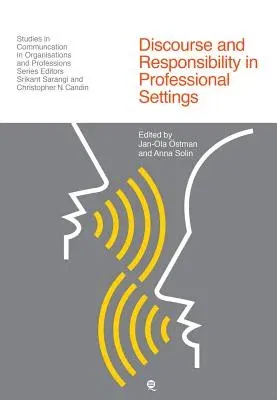This volume strengthens the case for analysing discourse from the point
of view of discourse participants' accountability and responsibility. It
adds an important and largely neglected strand to research in discourse
studies and pragmatics by analysing the expression and attribution of
responsibility, particularly in professional discourse.
Debates on social and professional responsibility have proliferated in
recent years both in the public sphere (e.g. in connection with
corporate responsibility reports) and in more local practices (e.g. as
manifested in the publication of in-house codes of conduct). However,
there is little academic research on professional discourse which
systematically addresses the ways in which responsibility relations are
construed in language use.
This volume contains a number of case studies focusing on different
professional settings: media, health care and social work. The types of
data examined range from globally available mass-consumed discourse
(such as news agency dispatches) to local and essentially private
face-to-face encounters (such as counselling sessions). The studies
examine different linguistic features (such as reported speech in
written texts and backchannelling in spoken encounters) and different
types of meanings (such as agency and causality). The studies draw on
different methodological approaches (mainly pragmatics, conversation
analysis and (critical) discourse analysis). A common thread running
through the contributions is that responsibility is not a stable quality
of people or institutions, but a dynamic and variable resource that
language users negotiate in interaction.

